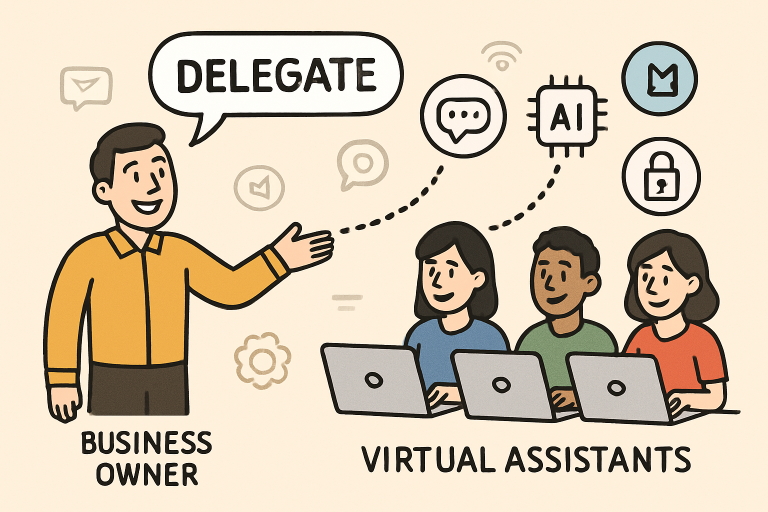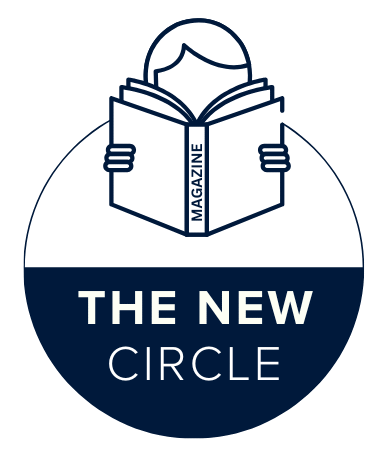Key Takeaways
- Virtual assistant agencies are transforming modern business operations through cost efficiency, specialized skills, and scalability.
- The integration of artificial intelligence is streamlining processes and enhancing productivity within the VA industry.
- Emerging trends like industry specialization and a focus on cybersecurity are shaping the future of outsourcing.
- Businesses must address communication, quality control, and data security challenges to maximize the benefits of VA partnerships.
Table of Contents
- Introduction
- The Rise of Virtual Assistant Agencies
- Key Benefits of Engaging Virtual Assistant Agencies
- Integration of Artificial Intelligence in Virtual Assistance
- Emerging Trends in Virtual Assistant Services
- Challenges and Considerations
- Conclusion
Introduction
As remote work and digital transformation redefine businesses’ operations, organizations increasingly rely on innovative solutions to remain agile and competitive. One such innovation that is gaining momentum is the partnership with a VA agency. These agencies connect companies with skilled professionals who remotely manage tasks ranging from calendar management to specialized project support. This approach offers critical advantages for businesses navigating a fast-evolving marketplace.
In a world where operational efficiency can make or break success, virtual assistant agencies help streamline processes, reduce overhead, and improve workflow. Whether a startup or an established corporation, engaging a VA agency provides flexible support without the traditional costs of hiring full-time, in-house staff. As a result, businesses are achieving greater adaptability and focus in a digital-first era.
Moreover, the virtual assistance industry’s rapid growth is fueled by an increasing recognition that operational flexibility is a key driver for business sustainability. With remote talent, geographical boundaries no longer limit organizational possibilities, opening the door to broader expertise and continuous service availability.
A recent Forbes report illustrates how the digital workforce, including virtual assistants, allows companies to respond quickly to changing demands and scale operations efficiently, ensuring resilience in a fluctuating economic climate.
The Rise of Virtual Assistant Agencies
Virtual assistant agencies have witnessed an exponential rise as businesses actively seek ways to reduce time spent on administrative work and focus resources on core activities. According to industry research, more than half of small and midsize enterprises are now investing in dedicated virtual assistant support, reflecting shifting attitudes toward outsourcing and remote collaboration.
This growth is further accelerated by advances in digital communication tools and collaboration platforms, which make it easier for companies to seamlessly onboard remote talent. The rise of VA agencies reflects a broader movement toward flexible workforce strategies that prioritize cost savings, efficiency, and access to a global talent pool.

Key Benefits of Engaging Virtual Assistant Agencies
- Cost Efficiency: Virtual assistants eliminate the need for additional office space, equipment, and employee benefits, leading to significant cost reductions. Businesses can allocate resources more effectively while maintaining high productivity levels.
- Access to Specialized Skills: VA agencies provide access to a wide array of expertise, including digital marketing, bookkeeping, customer support, and project management. This diversified talent pool means businesses can secure specialized support on demand, elevating their competitive advantage.
- Scalability: Companies scale their workforce up or down with virtual assistants as needed. This agility enables businesses to respond to shifting market needs and seasonal fluctuations without long-term employment commitments.
Integration of Artificial Intelligence in Virtual Assistance
The adoption of artificial intelligence (AI) is revolutionizing virtual assistants’ operations. AI-driven platforms and tools now handle repetitive or time-consuming tasks such as scheduling meetings, triaging emails, and basic data entry, freeing up human assistants for higher-level strategic and creative work. Virtual assistant agencies that leverage AI are thus able to offer faster, more accurate service and deeper business insights.
For example, AI-powered analytics interpret workflow patterns to suggest productivity improvements and inform strategic decision-making. This combination of digital and human intelligence elevates VA agencies’ value to their clients. Major business outlets like Harvard Business Review have emphasized AI’s transformative role in shaping the future of work.
Emerging Trends in Virtual Assistant Services
- Industry Specialization: Businesses are seeking VAs with specialized industry knowledge—like healthcare, legal, or e-commerce—to ensure that unique sector challenges are met with relevant expertise.
- Outcome-Based Partnerships: There is a move toward establishing relationships where agencies assume clear ownership of results, measured by key performance indicators and agreed outcomes. This ensures higher accountability and continuous evaluation.
- Emphasis on Cybersecurity: As reliance on remote talent grows, robust cybersecurity protocols are essential. Data protection and privacy are at the forefront of reliable outsourcing relationships, and VA agencies must regularly update and enforce strict security measures to mitigate risks.
Challenges and Considerations
- Communication Barriers: Success with virtual assistant agencies hinges on clear communication. Companies must establish regular check-ins, use collaboration tools, and set mutually understood expectations to avoid miscommunication.
- Quality Control: Continuous oversight and feedback are necessary to maintain high service standards. Implementing detailed performance metrics and routine reviews helps ensure that work remains timely and effective.
- Data Security: Sensitive business and client data must be protected rigorously. Contracts should include data handling clauses, and VA partners should be vetted for compliance with international security regulations such as GDPR.
Conclusion
Virtual assistant agencies provide a highly effective solution for businesses that balance cost savings with access to skilled, on-demand support in today’s digital-first environment. Unlike traditional staffing models, VA agencies offer organizations the flexibility to scale their workforce according to shifting demands, ensuring resources are used efficiently without long-term overhead. Their teams often consist of professionals with diverse expertise, from administrative support and customer service to specialized roles like digital marketing, bookkeeping, or project management. This variety allows companies to address multiple needs under one partnership while maintaining quality and consistency. By embracing the evolving role of virtual assistants, businesses can streamline operations, adapt quickly to market changes, and allocate more focus to innovation and growth initiatives. As technology and workplace trends continue to transform, collaborating with a reputable VA agency delivers the agility, efficiency, and competitive edge essential for success in the future of work.

